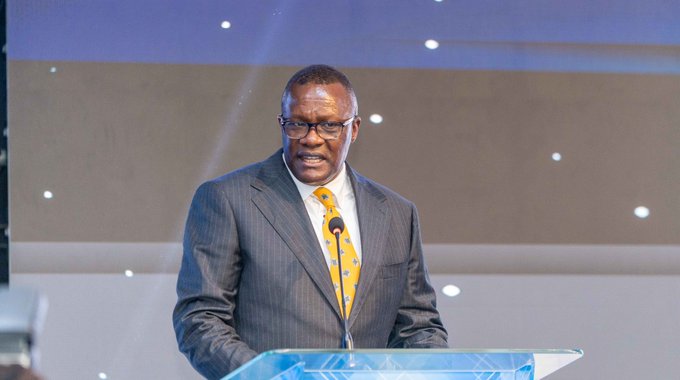
Kenya reaffirms commitment to democracy, transformation
The Deputy Chief of Staff in charge of Performance and Delivery Management, Eliud Owalo, has reiterated Kenya’s unwavering commitment to democratic governance and global standards as outlined by the United Nations.
Speaking at the “Democratic Governance: Shaping Future International Cooperation and Partnerships” conference in Nairobi, Owalo emphasized that Kenya remains steadfast in upholding international legal frameworks that advocate for governance and public participation.
Highlighting the essence of public participation as a cornerstone of Kenya’s governance approach, Owalo noted that the Kenya Kwanza administration is dedicated to fostering citizen involvement in decision-making processes.
He stressed that the government’s ongoing reforms reflect an inclusive approach aimed at ensuring every stakeholder’s voice is heard and valued.
One of the administration’s flagship reforms is the transformation of the healthcare sector through the establishment of the Social Health Authority (SHA), which replaced the now defunct National Hospital Insurance Fund (NHIF).
This significant overhaul aims to deliver equitable health services to both salaried and non-salaried citizens, bridging the gap in access to essential healthcare.
In a bold move to economically empower historically marginalized groups, the government introduced the Hustler Fund, which significantly lowered interest rates on loans from 17 percent to under 10 percent.
With accessible financing via mobile phones, the initiative empowers youth and women to take charge of their economic future without the burden of excessive requirements.
Owalo also emphasized the administration’s commitment to addressing the high cost of living by reducing agricultural production expenses, resulting in lower food prices and easing financial pressures on households.
This economic strategy is complemented by a robust digital transformation agenda that includes digitizing over 20,000 government services and constructing ICT hubs in all Technical and Vocational Education and Training (TVET) institutions.
Additionally, the government plans to deploy 100,000 kilometers of fiber optic cable across the country to build a more inclusive digital economy.
The conference, hosted by the UK Foreign, Commonwealth and Development Office and the Westminster Foundation for Democracy, brought together international policymakers and development experts to discuss economic and governance challenges, including climate change, corruption and debt management.
Participants underscored the urgent need for international cooperation to tackle emerging threats, including climate change impacts and geopolitical instability.
Delegates also acknowledged the increasing pressure on national security due to resource scarcity intensified by climate change, stressing that strengthening democratic governance is essential to fostering global stability.
As the four-day conference concluded, leaders reaffirmed the critical role of international collaboration in advancing democratic values and addressing interconnected global challenges.
